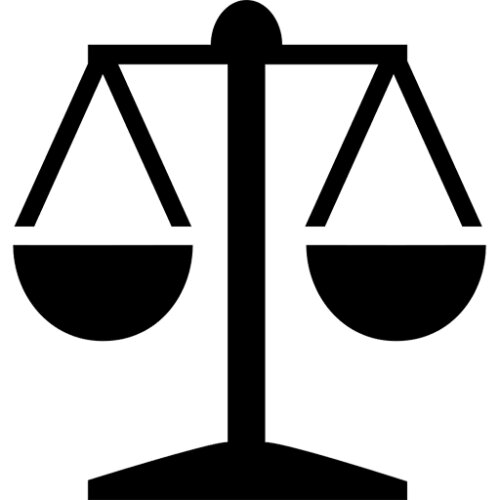Best Art & Cultural Property Law Lawyers in Nice
Share your needs with us, get contacted by law firms.
Free. Takes 2 min.
List of the best lawyers in Nice, France
About Art & Cultural Property Law in Nice, France
Art & Cultural Property Law in Nice, France, encompasses legal principles and regulations concerning the creation, ownership, sale, and preservation of cultural artifacts and artworks. Nice, known for its rich artistic heritage, is home to numerous galleries, museums, and historical sites, which makes it a hub for cultural property issues. In France, such laws are designed to protect the country's cultural heritage and ensure that artworks and artifacts are preserved and responsibly managed. This includes regulations on provenance, export restrictions, and restitution of cultural assets.
Why You May Need a Lawyer
Securing legal assistance in Art & Cultural Property Law is important in various situations. You may require a lawyer if you are involved in disputes over the ownership of artworks, seeking restitution for looted or stolen cultural items, dealing with issues of authenticity and provenance of art pieces, facing legal challenges in art transactions, or simply navigating the complex regulations of exporting or importing cultural properties. Furthermore, if you are responsible for managing collections in museums or gallery spaces, legal advice can help ensure compliance with the relevant legal frameworks.
Local Laws Overview
The legal framework for Art & Cultural Property in Nice is influenced by both French law and international conventions. French heritage laws provide stringent controls over archaeological finds and historic buildings, and there are specific provisions related to cultural property in the French Civil Code. The Code du Patrimoine (Heritage Code) addresses issues such as the classification and protection of historical monuments and movable heritage. Additionally, France is a signatory to UNESCO conventions that focus on protecting cultural heritage globally, which is pertinent when addressing cross-border preservation issues or disputes.
Frequently Asked Questions
What defines cultural property under French law?
Cultural property is broadly defined as items of significant artistic, archaeological, ethnological, or historical importance. This includes artworks, manuscripts, antiques, and architectural monuments.
Do I need a permit to export art from France?
Yes, certain artworks and cultural items require an export certificate to leave France. The requirement depends on the item's age and value, so it's essential to check specific regulations applicable to your situation.
What steps should I take if I discover a historical artifact?
If you find a historical artifact in Nice, you must report it to the local authorities. Excavating or keeping such artifacts without authorization is illegal.
How can I prove the provenance of an artwork?
Provenance can be established through a combination of ownership history, receipts, gallery or auction records, and expert evaluations. Properly documenting all transactions and history is vital.
Is it possible to reclaim stolen art or cultural property?
Yes, there are legal channels to reclaim art or cultural property stolen or looted, but this often involves complex proceedings and verification of ownership and provenance.
Can art purchased abroad be displayed in my museum in Nice?
Yes, but ensure compliance with international import regulations and verify that the pieces are legally acquired and accompanied by appropriate documentation.
Are there specific laws regarding the restitution of colonial-era artifacts?
France is engaging in discussions and policies regarding the restitution of artifacts taken during the colonial era. Legal processes for restitution can be guided by bilateral agreements and local regulations.
What rights do artists have over their creations?
Artists in France have moral rights over their work, ensuring their name is associated correctly and their creation is not altered in a manner that might harm their reputation.
How do I check if a piece is a national treasure?
Artworks or artifacts can be declared national treasures by authorities in France, making their export illegal. Verify the status with the Ministry of Culture and other relevant organizations.
Can I sell cultural property online?
Selling cultural property online is permissible but must adhere to legal guidelines concerning authenticity, provenance, and applicable export controls.
Additional Resources
For more information and assistance, consider engaging with the following resources:
- Ministry of Culture (Ministère de la Culture) - Oversees the protection of cultural heritage in France.
- International Council of Museums (ICOM) - Provides guidelines on museum best practices.
- French National Commission for UNESCO - Offers information on France's role in protecting cultural heritage globally.
- Local museums and cultural organizations in Nice, which may provide educational resources and support.
Next Steps
If you require legal assistance in the field of Art & Cultural Property Law in Nice, here are the steps you can take:
- Consult with specialized lawyers or law firms that focus on art law and cultural property. They can offer pertinent advice and representation.
- Gather all relevant documentation, including provenance records, purchase agreements, and any other paperwork that may aid in resolving your legal issues.
- Contact professional organizations that offer legal guidance, such as bar associations or specific art law societies.
- Engage with local authorities or cultural institutions if your case involves public or state interests.
Lawzana helps you find the best lawyers and law firms in Nice through a curated and pre-screened list of qualified legal professionals. Our platform offers rankings and detailed profiles of attorneys and law firms, allowing you to compare based on practice areas, including Art & Cultural Property Law, experience, and client feedback.
Each profile includes a description of the firm's areas of practice, client reviews, team members and partners, year of establishment, spoken languages, office locations, contact information, social media presence, and any published articles or resources. Most firms on our platform speak English and are experienced in both local and international legal matters.
Get a quote from top-rated law firms in Nice, France — quickly, securely, and without unnecessary hassle.
Disclaimer:
The information provided on this page is for general informational purposes only and does not constitute legal advice. While we strive to ensure the accuracy and relevance of the content, legal information may change over time, and interpretations of the law can vary. You should always consult with a qualified legal professional for advice specific to your situation.
We disclaim all liability for actions taken or not taken based on the content of this page. If you believe any information is incorrect or outdated, please contact us, and we will review and update it where appropriate.









